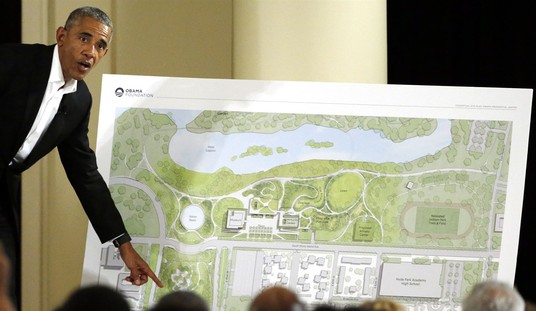Conservatives tend to look at political donations the way they look at giving to charity or paying dues in an organization. Politicians and political groups capitalize on this.
Thus, political fundraising letters have the same feel as direct mail from your favorite charity: “I need your help to carry on the fight against Nancy Pelosi, Harry Reid, and her liberal cohorts.” Conservatives have also gotten used to political groups borrowing persuasion methods from ransom notes: “If we don’t raise $100,000 by midnight Tuesday, we’ll be unable to stop the destruction of this country by the far left.” Other letters try guilt: “I have to wonder if you’re really committed to the values we share.”
The effectiveness of such fundraising methods has waned for a variety of reasons: the fundraising scandals at the Republican National Committee; the National Republican Senatorial Committee throwing in behind Charlie Crist only for Crist to leave the GOP and take the money with him; and the National Republican Congressional Committee’s wasted half-million-dollar investment in Dede Scozzafava, who endorsed the Democrats. Thus, while the GOP is favored to gain seats this fall, its donor base is not turning a political edge into a cash advantage.
If conservatives want to change their fundraising fortunes, they must change the way political giving is viewed. Political giving should be considered an investment in the future of the country. Leaders who govern according to conservative principles and groups that forward conservative values help to preserve and maintain an environment that allows for economic freedom and the preservation of the American way of life.
To begin thinking like investors, conservatives need to look at three key points:
1. What they hope to achieve
A donation to a candidate who faces token opposition will have little return. The only thing you’re giving the incumbent is an “attaboy” or “attagirl,” and money they don’t need. Donations to a candidate in a tight race, however, can actually turn a race.
We should also support candidates who may not be able to win their race but are strong prospects for future political success. An example is the Senate campaign of Indiana state Senator Marlin Stutzman, who received generous support from conservatives. While Stutzman lost to Dan Coats in the Senate race, his strong second place finish led local Republicans to nominate him to replace Mark Souder in the U.S. House.
The same goes for political organizations. Before conservatives give to any organization, be it the Heritage Foundation, the American Conservative Union, or the Family Research Council, they should have a strong grasp of what the organization’s goals are and what it’s doing to achieve them.
2. The impact of their investments
Conservative values and geography affect the impact. For example, if a week before the election Idaho state Representative Raul Labrador and Connecticut state Senator Dan Debicella had equal chances of defeating the Democratic freshmen they were challenging, donating to Labrador would make the most sense. Labrador would vote with conservative values more often than Debicella. In addition, if Debicella wins, Republicans will have to spend a lot of money to hold his seat, as this liberal district voted for Obama by a 60-40% margin. On the other hand, McCain won Labrador’s district 62-36%. If Labrador is successful, he should hold the seat for many years to come without additional out-of-state money.
Population size and other factors that increase campaign expenses have to be considered, particularly with Senate races. Many well-meaning conservative websites and groups urged people to send money to Assemblyman Chuck DeVore in his failed bid for the U.S Senate in California. Had DeVore won, he would have needed to raise tens of millions of dollars from grassroots conservatives to keep his campaign competitive in media-rich California. The resources it would have taken to help DeVore win the Senate seat would have meant far less conservative money for less expensive and more winnable seats in places like Nevada, Missouri, and Kentucky.
3. The effectiveness of their investments
Conservatives who want to support groups who will do a good job boosting overall Republican chances in the fall should consider the effectiveness of the RNC, the NRCC, the NRSC, and the Republican Governors Association over recent months.
Conservatives should also demand that groups that want their money be relentless in examining how effective their efforts are. For example, is Americans for Tax Reform’s taxpayer protection pledge actually effective in avoiding tax increases? Is the Conservative Political Action Conference (CPAC) strengthening the conservative movement, or is it the conservative equivalent of a Star Trek convention?
These questions deserve to be answered, and few of these groups are even asking them. Pundits would be shocked if the American Conservative Union announced it would no longer sponsor CPAC because it wasn’t an effective use of money. However, if it’s not furthering the conservative cause, the American Conservative Union’s investors should expect nothing less.
If a group refuses to examine itself, and isn’t effective towards the end it’s supposed to serve, it falls to conservative investors to find organizations that will forward their values. Conservatives should no more invest in an ineffective organization than they would invest more money in a failing company with unresponsive and oblivious leadership.
In conclusion, a conservative political investor class will make the conservative movement better by introducing market forces into an arena that has been dominated by emotion rather than logic. This will lead to new ideas and new approaches to old problems. All grassroots conservatives have to do is demand it.









Join the conversation as a VIP Member